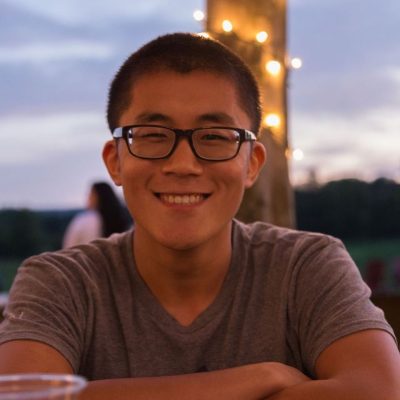Student Spotlight: Yubo Su

February 21, 2022
Yubo Su is a doctoral candidate in astronomy and space sciences from Atlanta, Georgia. After attending California Institute of Technology as an undergraduate, he chose to pursue further study at Cornell due to the range of astrophysics research being pursued here. Yubo Su is a recipient of a 2022 Wu Scholarship.
What is your area of research and why is it important?
One area of my research concerns how exoplanets, planets that orbit stars other than our sun, can become tilted very gradually over time. Such a process occurs due to the planet’s gravitational interactions with other planets in its extrasolar system. I find that exoplanets’ tilts, or “obliquities”, can often grow to large values. Since the obliquity of an exoplanet affects its seasons and potential habitability (e.g. Earth’s mild 23 degree tilt gives us our mild four seasons), it plays an important role in determining whether the exoplanet is habitable. I also study the long-term evolution of systems of stars and black holes.
What are the larger implications of this research and what is its impact?
Of course, finding habitable planets is an important first step towards the search for extraterrestrial life. However, even if we don’t find signs of extraterrestrial life any time soon, understanding the conditions that a planet must satisfy to be habitable, as well as the prevalence of such conditions, gives us insights into how rare the Earth is in the universe. An accurate understanding of how planets generally evolve is also useful in deciphering the early history of the solar system, which we cannot directly observe.
What does it mean to you to have received the Hsien and Daisy Yen Wu Scholarship?
I am tremendously honored to be recognized in this way among all of Cornell’s incredible graduate students! I must give my deepest thanks to my department, my adviser and other academic mentors, and my nominators for their support all along the way.
What will this award allow you to do that you might not have been able to otherwise?
As my work relies heavily on numerical computation, I intend to use this award to upgrade my computer hardware. While I have access to plenty of computational resources for more taxing work, both small-scale simulations and post-processing of large datasets benefits greatly from a powerful personal computer.
What are your hobbies or interests outside of your research or scholarship?
I am an avid marathon runner and can be often seen around my apartment and campus. I also enjoy playing the piano, though the keyboard in my room belies how inconsistently I actually practice. Oops. I also greatly enjoy baking, mixology, programming, mechanical keyboards, and generally tinkering around in new hobbies!
Why did you choose Cornell to pursue your degree?
When I first visited Cornell, I immediately noticed the broad range of astrophysics research that was being pursued throughout the department. Coming from a very broad background and range of interests myself, I was immediately sure that I would have plenty to learn and to do here. Then I walked around campus, played in the snow, hung out with the graduate students, and the deal was sealed!
